Bessemer's Inaugural 2020 Fellowship Class
Seventeen summer interns at the fast-growing companies share the change they wish to see in technology by 2030.
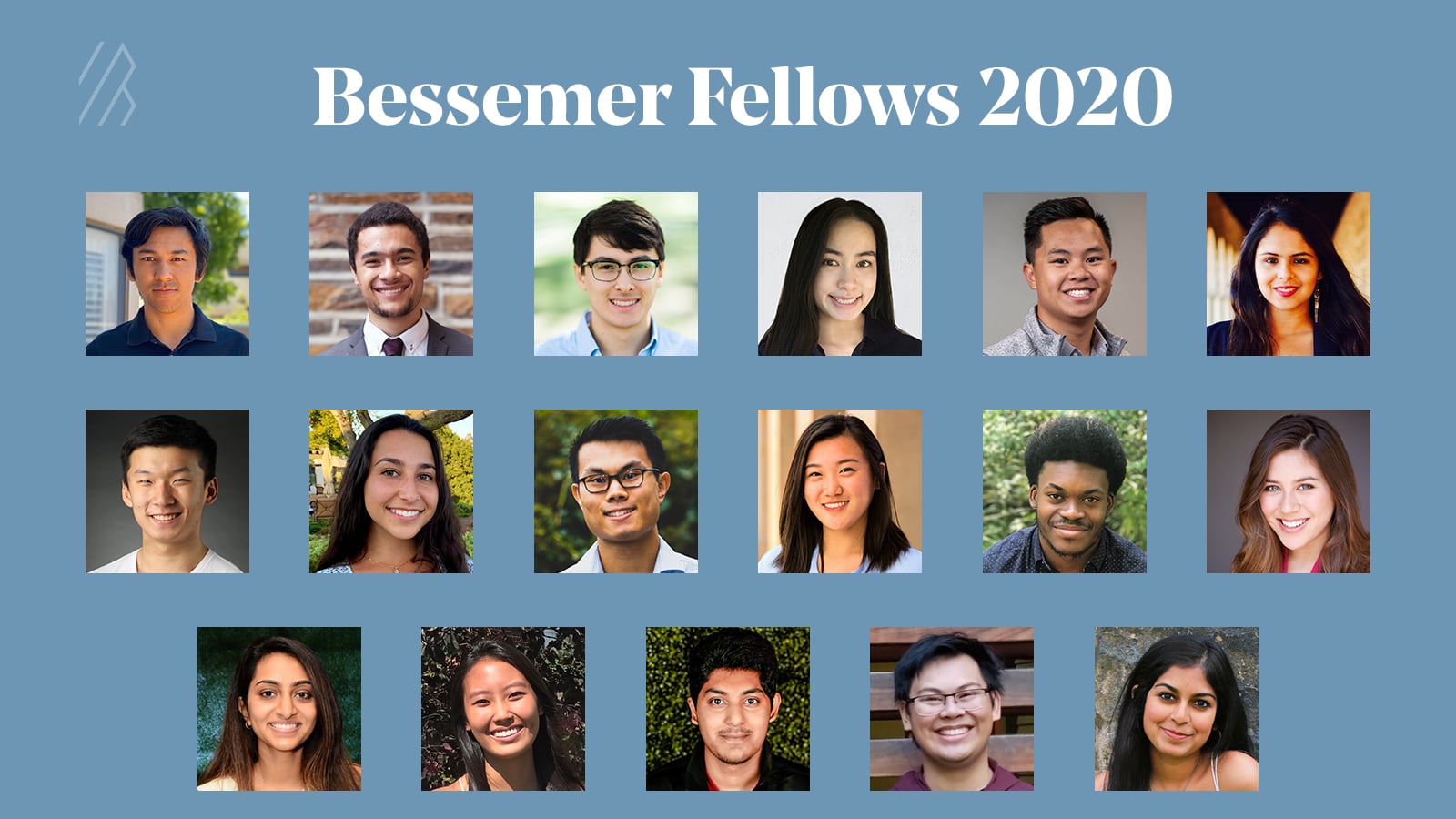
This year we launched our inaugural Bessemer Fellows Program, with the aim to connect university students to the fastest-growing technology companies in the world. Our hope for this annual summer program is to help students interested in engineering, product, data science, or a passion for technology to acquire invaluable work experience and access to mentors, industry professionals, and the Bessemer community. For example, this year our Fellows have connected with technology leaders such as Sameer Dholakia (CEO, Sendgrid), Jim Barnett (CEO, Glint), Rukmini Reddy (VP Engineering-Platform, Slack) Vinay Ramani (former Chief Product Officer, Pipedrive), Laura Dholakia (former VP Business operations, LinkedIn), and several others.
Seventeen Bessemer Fellows, from all over the United States, including Canada, joined this program. As 2020 has become the year of “unprecedented times,” these interns worked in very unusual circumstances as companies, large and small, quickly accelerated their remote and virtual work environments due to the coronavirus pandemic.
Our goals for this program are to help provide access to technology companies and build connections and community that could possibly spark a career in entrepreneurship and venture capital. At Bessemer, we believe career aspirations thrive through an apprenticeship model.
In getting to know each member of our Bessemer Fellowship 2020 Class, we’ve seen each individual demonstrate a deep sense of curiosity and critical thinking.
In our commitment at Bessemer to be moved to question, we asked them: “What change do you wish to see in tech by 2030?”
We hope this year’s Fellows help inspire other students and aspiring entrepreneurs, technologists, and investors to consider applying for next year’s Bessemer Fellowship.
Meet our Bessemer Fellows 2020
Alex Laubscher - Johns Hopkins University, Applied Math and Statistics
“Above all else, I hope to see continued efforts towards diversity of thought, race, gender, and socioeconomic backgrounds. Technology's trajectory in the next decade has too much potential for its crop to be reaped inequitably.”
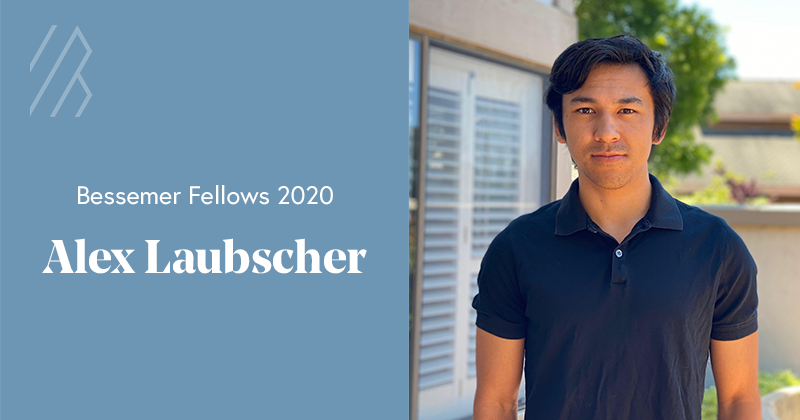
Andres Montoya - Duke University, Computer Science and Physics
“Tech has solved so many of the world's problems but now has the potential to create a few, such as vast problems from job losses through automation to malicious facial recognition algorithms. I hope by 2030, we start solving them too.”
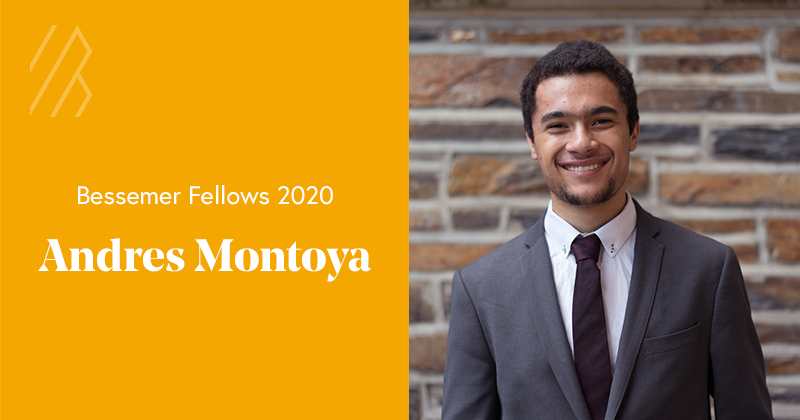
Austin Moninger - Rice University, Computer Science
“I hope to see more founders of bootstrapped companies. The prevailing narrative is that you must raise money to start a company, but there are many smaller, non-venture scale markets waiting for founders to take them into the 21st century.”
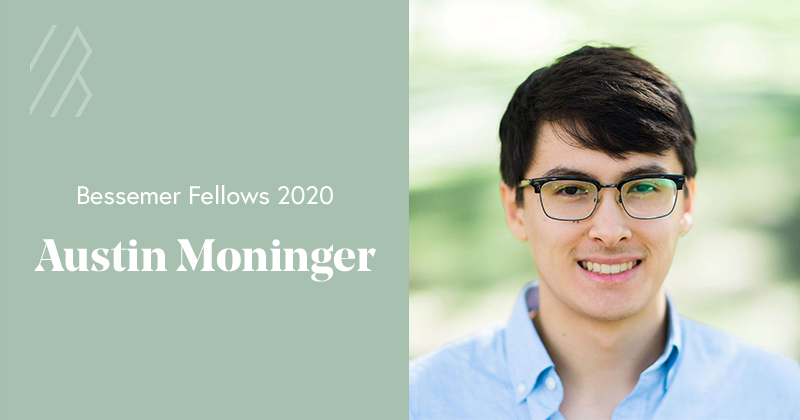
Christina Leung - UC San Diego, Computer Science
“By 2030, I hope that we are able to remove carbon dioxide from the atmosphere in order to slow the warming of the Earth and allow future generations to live in the world as we know it.”
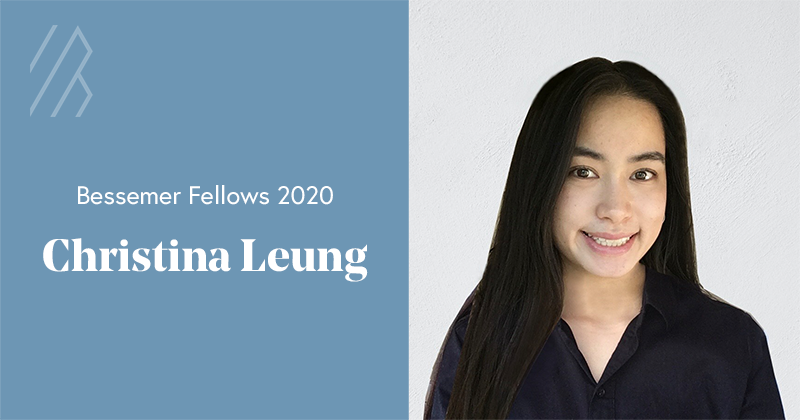
David Joshua Lee - Cal Poly, San Luis Obispo, Economics
“By 2030, I hope to see tech become less clout-driven and more passion-driven. From my experience as an undergraduate, I've found students focus on a company's name brand more than their product, culture, etc. This needs to change.”
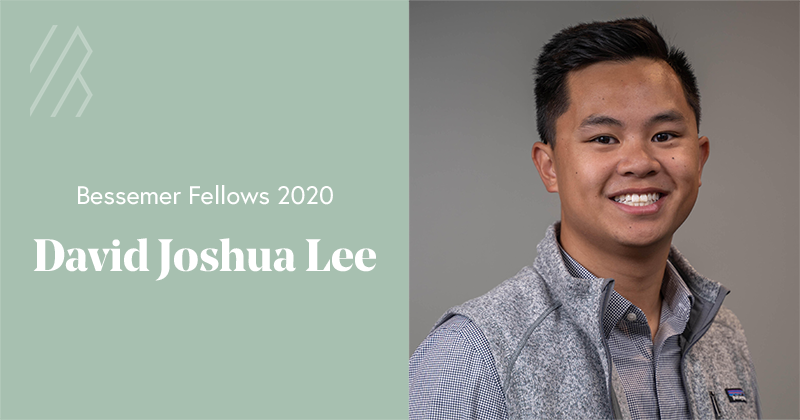
Diva Sharma - Stanford, Computer Science
“By 2030, I want to see technology drive down costs in the fragmented United States healthcare system. I want to see technology applied to expedite insurance filing, generate healthcare data to drive research, enhanced remote patient monitoring, and shorten pharmaceutical clinical trial timelines.”
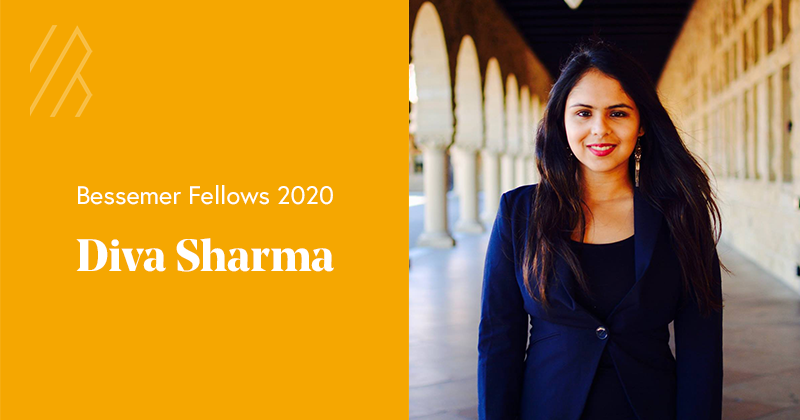
Ethan Ding - UC Berkeley, Industrial Engineering Operations Research
“When it's lunchtime during 2030, I want to be able to have a fully autonomous food delivery drone bring me a fresh-out-of-the-grill, 100% beef patty Big Mac from the McDonald's Extra Value Menu.”
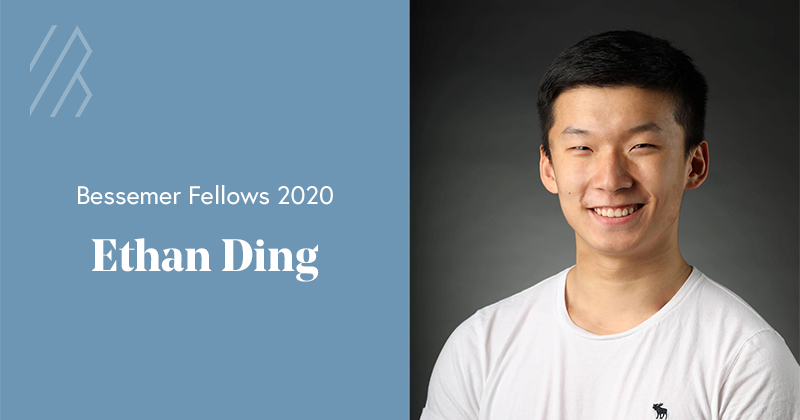
Gaby Goldberg - Stanford, Symbolic Systems
“By 2030, I hope to be part of a community where anyone has the access, ability and support to enact positive change through technology.”
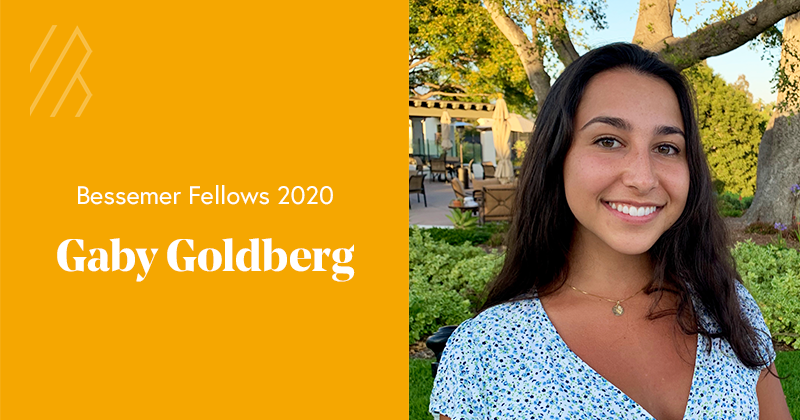
Jarod Wong - University of Washington, Informatics
“By 2030, I wish to see a majority of all board seats and C-suite positions on Fortune 500 tech companies held by people of different genders, people of color or from historically marginalized groups, and people living with a disability.”
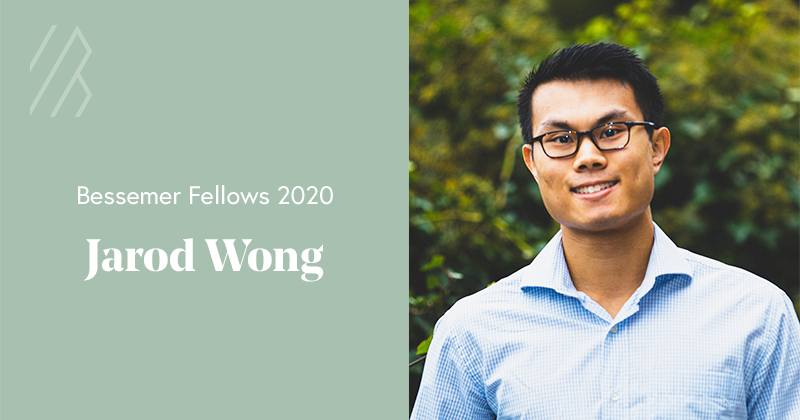
Jenny Zhi - Stanford - Symbolic Systems
“Today's optimized lifestyles are fast and complex. There's more that we want to do, and less time to do it—unsurprisingly, health falls behind as a priority. By 2030, I would like to see active attention towards mental and physical health become a ubiquitous use case of tech.”
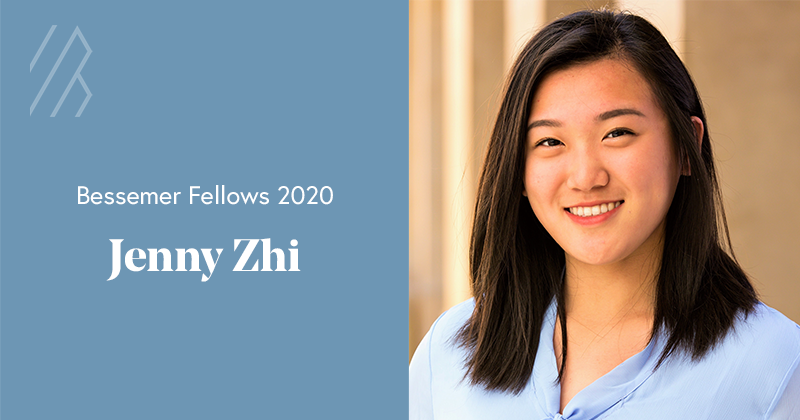
Joshua Howard - University of Arkansas, Entrepreneurial and Small Business Operations
“I’d like to see more cross-pollination of talent across technology, policy, and public service. Technology is shaping the way the world lives, plays, and produces resources, and I’d like to see a more integrated approach to advancing societal goals through technology and the collaboration between public and private groups. This is where I think the apex of talent and resources can converge to solve some of the most important problems of the 21st century."
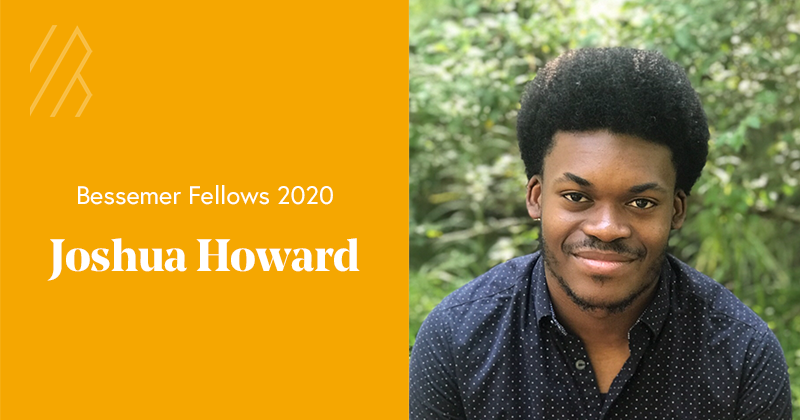
Madison Frye - Brown University, Engineering
“In 2030 I’d like to see legacy healthcare software upgraded to consumer-grade, user-first experiences. Instead of associating healthcare with confusing, antiquated systems, I want us to immediately think of excellent design (by industry-agnostic standards) from clinical medical devices to EHRs.”
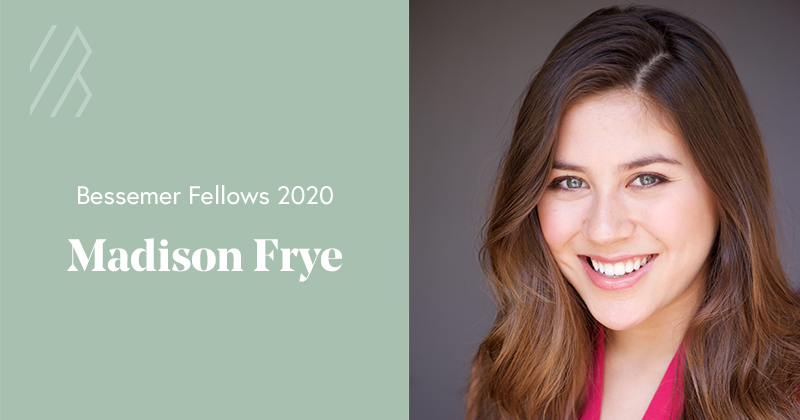
Meghana Reddy - Stanford, Economics
“A change that I wish to see in tech by 2030 is to see tech move from the centralizing model of the Big Tech companies more extremely to the distributed model of the gig economy so that tech could be a system where smaller companies have more impact.”
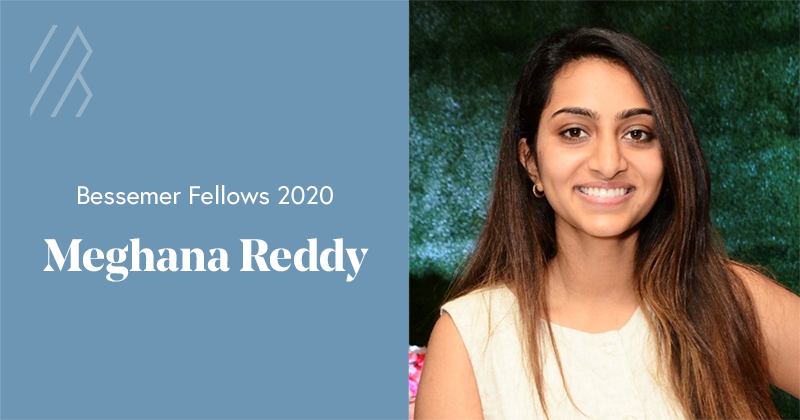
Kathy Huang - Stanford, Electrical Engineering
“By 2030, I wish to see more diversity and inclusion at all levels and areas of tech, including tech education, early and late-stage companies, and venture capital. I believe that diversity and inclusion are integral to the future success of the industry.”
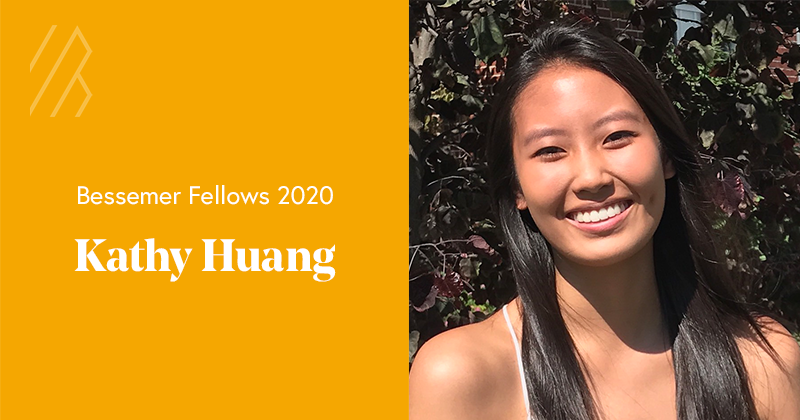
Rafi Tanzim Syed - University of Toronto, Mathematics, Statistics, and Computer Science
“By 2030 I wish to see a world dominated by autonomous vehicles both on the road and in the sky, and a society free of algorithm induced ‘filter bubbles’.”
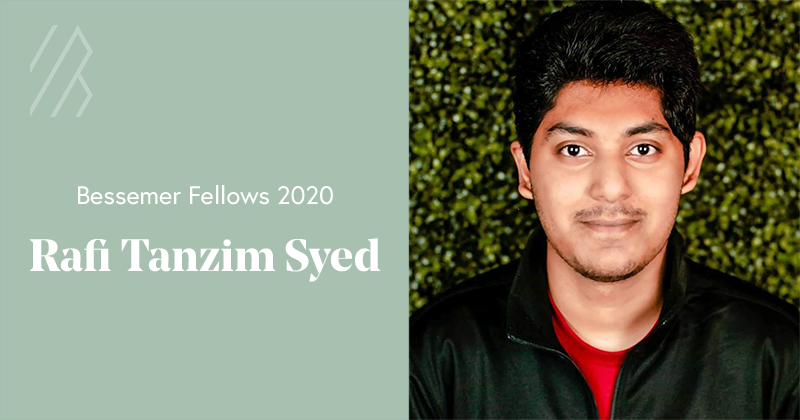
Rich Unite - UC San Diego, Electrical Engineering
“In 2030, I wish to see further access to affordable high-speed internet. Access to high-speed internet is increasingly a must-have in society; from staying connected or working from home, there is a clear disadvantage from not having high-speed internet.”
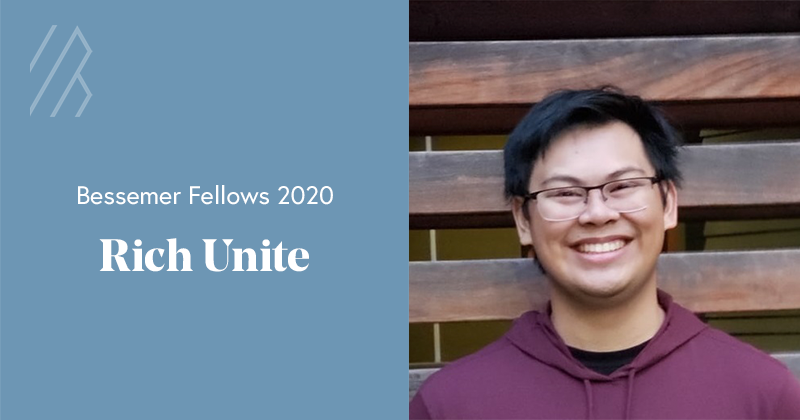
Sowmya Patapati - Stanford, Computer Science & Mathematics
“By 2030, I wish to see more diversity and inclusion in the tech industry. Technology is the largest tool we have to push for social advancement. Embracing a culture of diversity will allow us to build better products and accelerate progress.”
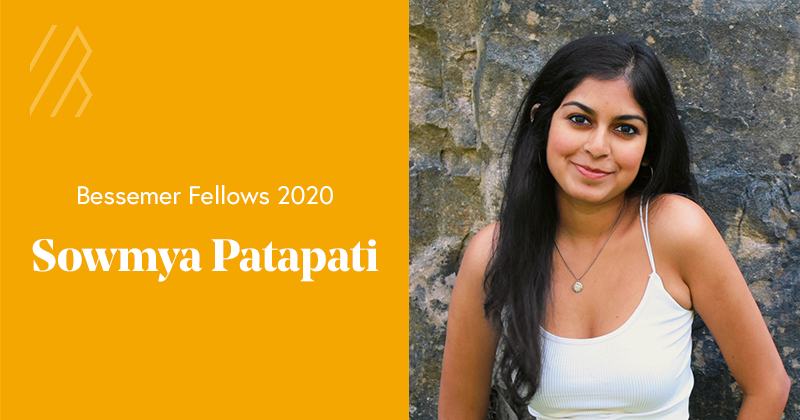
Will you join us?
Applications for Bessemer Fellowship Class for the Summer of 2021 are now open.
Our Fellows will get unique opportunities to connect with investors and partners at Bessemer as well as founders within our portfolio companies to expand their knowledge of investing in and starting a company. If you have any questions about the program, please learn more here and contact Sibley Silcox (mailto:ssilcox@bvp.com).
